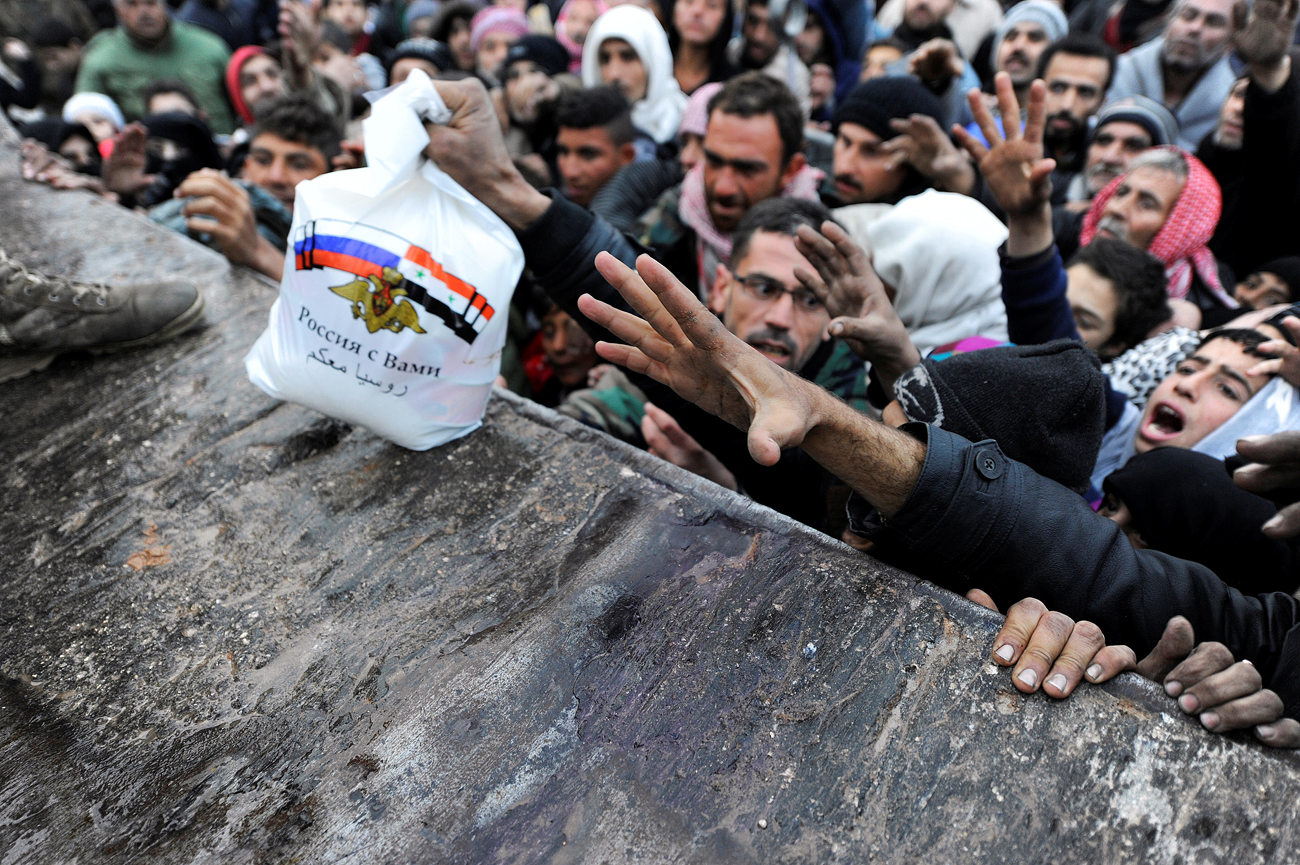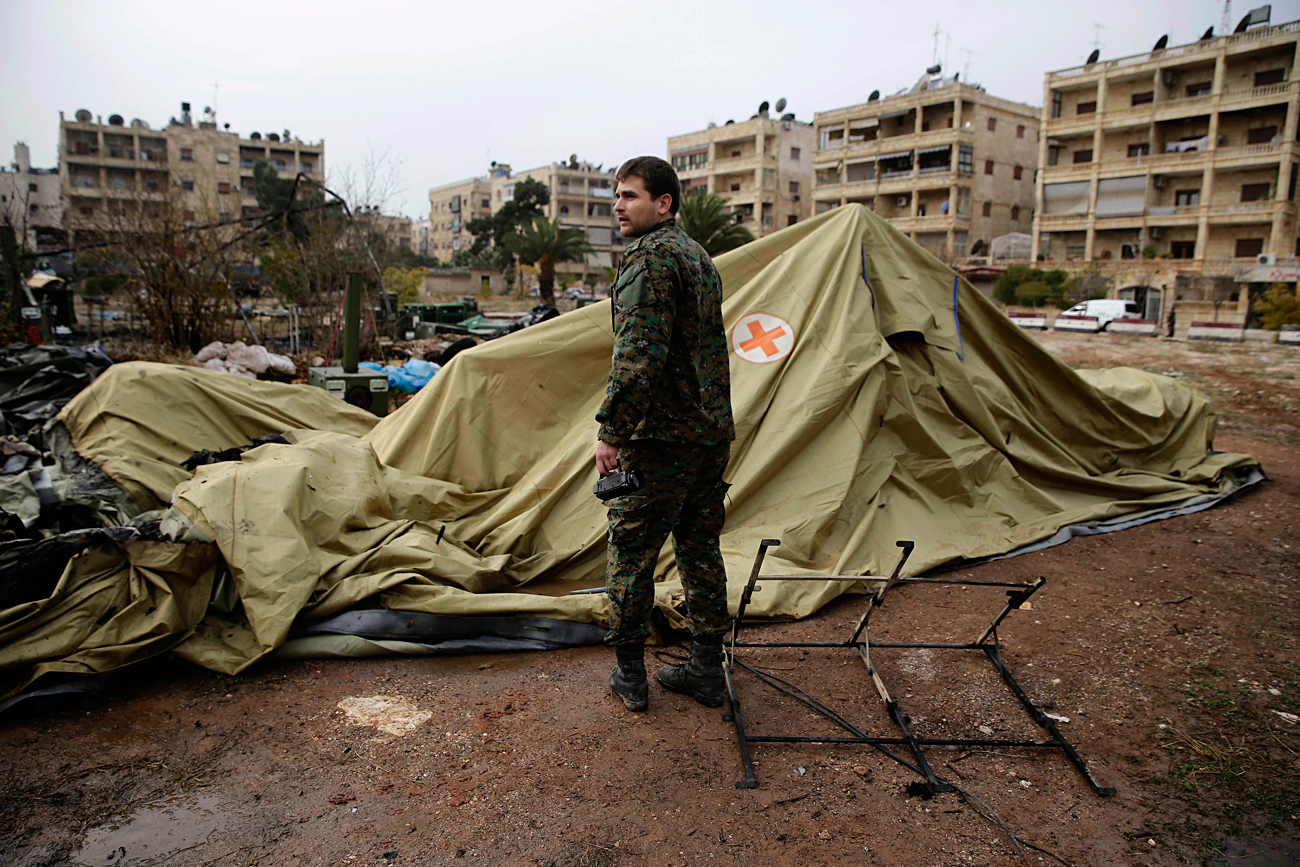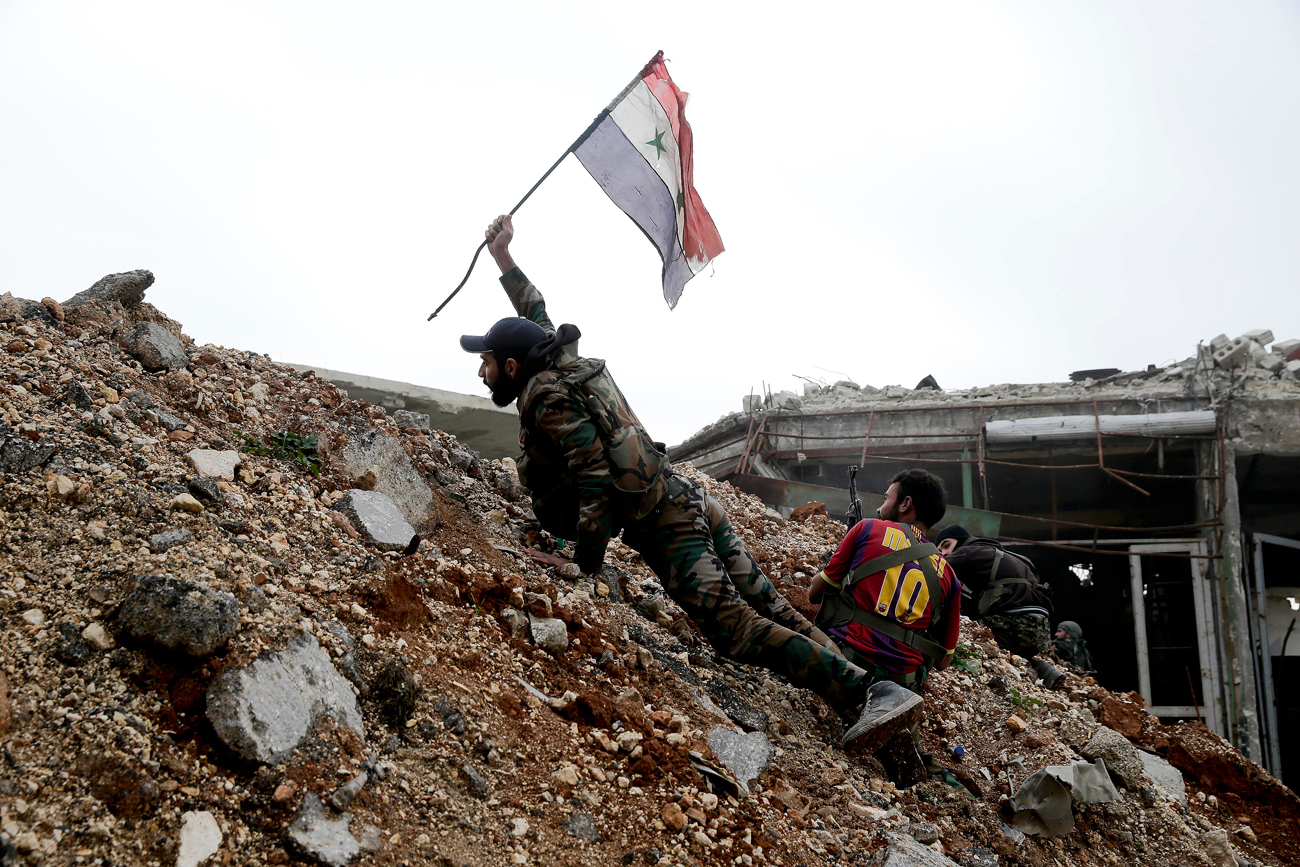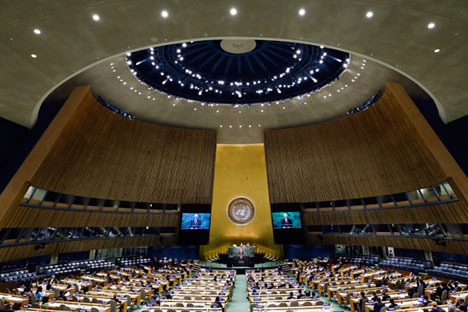Poles apart: Can the divisions between Russia and the West be bridged?

Syrians who have been evacuated from eastern Aleppo, reach out for Russian food aid in government-controlled Jibreen area in Aleppo, Syria.
ReutersRussian and Western international affairs experts gathered in Moscow for a conference devoted to exploring policy areas of global significance in which Russia and the West are unable to find common ground. Named "Hypocrisy vs. Diplomacy,” the forum took place in the Russian capital on Dec. 5.
"The tissue of conversation is being torn apart in the world," said Fyodor Lukyanov, one of the conference's organizers and chairman of the Council of Foreign and Defense Policy, an independent Moscow-based political think tank.
While the absence of dialogue between Russia and the West, according to experts who participated in the meeting, has the potential to be fatal, it is still possible to find a compromise through proper discussion of even the most sensitive problems.
 A Russian soldier checks a burned medical tent after rebels launched a mortar shell at a field hospital in west Aleppo, Syria, Monday, Dec. 5, 2016. Rebel shelling of the government-held part of Syria's Aleppo city Monday killed a Russian female nurse in a makeshift Russian hospital in the city, a Russian officer there said. Source: AP
A Russian soldier checks a burned medical tent after rebels launched a mortar shell at a field hospital in west Aleppo, Syria, Monday, Dec. 5, 2016. Rebel shelling of the government-held part of Syria's Aleppo city Monday killed a Russian female nurse in a makeshift Russian hospital in the city, a Russian officer there said. Source: AP
NATO's eastward expansion
The issue of NATO's expansion is one of the most deep-rooted contradictions in relations between Russia and the West, with many Russians subscribing to the official Kremlin line that the military alliance made Moscow a “promise” not to expand after the collapse of the USSR.
"We were promised that NATO would never expand. We wanted to please our Western friends. And we were deceived," said Sergei Karaganov, dean of the Department of World Economy and Policy at the Higher School of Economics, speaking at the conference.
However, former Soviet president Mikhail Gorbachev himself admitted in an interview with RBTH in 2014 that no such promise had been made, and British diplomat and former counselor at the European External Action Service Robert Cooper noted at the conference that according to NATO, there are no documents confirming Russia's claims.
In his words, NATO played a positive role, helping the countries of Eastern Europe, for many of whom memories of Soviet occupation and domination remain fresh, "feel a lot safer."
Andrei Kortunov, general director of the Russian Foreign Affairs Council, told RBTH that Russia obviously cannot be a part of the Western security system based on NATO, but at the moment it is not necessary: "Most likely, there will be two security systems: the Euro-Atlantic and the Eurasian (which Russia is trying to build together with China)," he said.
"Probably, there will be a 'two-story' order," explained Kortunov. "Each system will have its sphere of responsibility, but there will still be an 'upper' level on which everyone jointly fights global threats: terrorism, ecological problems, etc."
The Middle East and the war in Syria
Syria is an area of profound incomprehension between Russia and the West. The US accuses Moscow of supporting Bashar Assad, whom they consider a murderer, while Moscow responds by accusing the US of flirting with the Al-Nusra Front. Diplomat and Arab scholar Alexander Aksenyonok, a member of the Russian Foreign Affairs Council, believes that in the Middle East Russia and the West are doing the same thing: taking care of their interests.
"Russia felt itself deceived after the adoption of the resolution on Libya [UN Security Council Resolution №1973, which sanctioned humanitarian intervention and the overthrow of Gaddafi] and decided to pay the West with the same coin," says Aksenyonok, implying that now in the Middle East both Russia and the West are implementing their agenda.
Concerning the Syrian issue, Aksenyonok believes that there is a high possibility that the country will be divided into areas controlled by the government and the opposition. Soli Özel, professor of international relations at the Kadir Has University in Istanbul, agrees with Aksenyonok. "I think that Assad will end up owning the Western part of the country where 85% of the population lives," Özel told RBTH. The remaining part of Syria will go to the insurgents.
Özel also believes that Western countries, which are tired of the Syrian conflict, are ready to make concessions to Assad and Moscow and will not insist on supporting the opposition, especially after Donald Trump moves into the White House.
The Ukrainian deadlock
The process to find a peaceful resolution to the conflict in the Donbass, which was launched in 2014 in Minsk, has reached a dead end. The Russian, Ukrainian, French and German foreign ministers continue to talk, but their meetings in Minsk yield no fruit. Russia and Ukraine, which is supported by the West, accuse each other of undermining the peace process.
"Nobody believes that Minsk can be implemented," said Alexei Miller, professor at the European University at St. Petersburg. "And it’s absolutely unclear how to get out of that."
Thomas Bagger, director of the Foreign Policy Planning Service at the German Foreign Ministry, agrees that the Minsk process is in crisis, but nevertheless believes that it is the only possible solution for getting out of the impasse in eastern Ukraine.
"Now, after the 13th round of ministerial meetings and tedious discussions, the main argument to hold on to Minsk is that it prevented worse things from happening," said Bagger. In his view, distrust is still blocking the peace process, but it is worth continuing to support the dialogue in hope of changes for the better.
Read more: Russian servicemen train with Chinese military in SCO drills>>>
Subscribe to get the hand picked best stories every week
All rights reserved by Rossiyskaya Gazeta.
Subscribe
to our newsletter!
Get the week's best stories straight to your inbox

